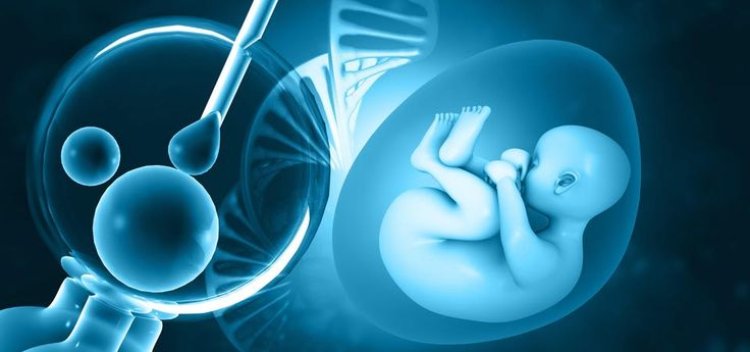What Happens to Your Body After Failed IVF: Understanding the Physical and Emotional Impact
IVF (In-Vitro Fertilization) is a ray of hope for couples struggling with infertility, offering a chance to experience parenthood. However, like all medical treatments, IVF doesn’t always guarantee success.

IVF (In-Vitro Fertilization) is a ray of hope for couples struggling with infertility, offering a chance to experience parenthood. However, like all medical treatments, IVF doesn’t always guarantee success. The emotional disappointment of a failed IVF cycle can be overwhelming, but the physical effects on your body are also significant. Many couples undergoing IVF treatment in Bangalore often wonder what happens to their bodies after a failed IVF cycle and what to expect next.
This article will walk you through the physical and emotional aftermath of a failed IVF cycle, how to manage the experience, and what steps to take moving forward.
1. Hormonal Fluctuations
During an IVF cycle, hormone injections such as gonadotropins, estrogen, and progesterone are administered to stimulate the ovaries and prepare the uterine lining for pregnancy. If the IVF cycle fails, your body will stop receiving these hormonal medications, which can lead to hormonal imbalances and fluctuations.
- Physical effects: You may experience bloating, mood swings, fatigue, or irritability due to a sudden drop in hormone levels. It's common for women to feel similar symptoms to PMS (Premenstrual Syndrome) after a failed IVF attempt.
- Emotional impact: The rollercoaster of hormones can heighten emotional distress, contributing to feelings of sadness, frustration, or hopelessness.
What to do: It’s important to allow your body time to return to its natural hormonal state. Your doctor may suggest a follow-up consultation to evaluate your hormone levels and offer guidance on how to manage these fluctuations.
2. Changes in Your Menstrual Cycle
One of the first signs after a failed IVF cycle is the onset of menstruation. Your period might return earlier or later than expected, and it might be heavier or lighter than your usual flow. This change is due to the hormonal treatments and stimulation that your ovaries underwent during the IVF process.
- Physical effects: You may experience cramping, heavier bleeding, or clotting in your period. Spotting between periods is also possible.
- What to expect: After a failed IVF attempt, your body takes time to adjust, and your menstrual cycle may not immediately return to its normal rhythm.
What to do: While irregular periods are expected, consult your IVF doctor in Bangalore if you notice severe changes or prolonged symptoms. Your doctor might monitor your cycle for a few months to ensure that your reproductive health is stable.
3. Physical Discomfort and Bloating
Women who undergo ovarian stimulation often experience bloating and discomfort due to the growth of multiple follicles in their ovaries. After the failed IVF attempt, these symptoms may linger for a while before subsiding.
- Physical effects: Ovarian discomfort, mild cramping, or bloating might persist even after the embryo transfer has failed.
- What to expect: This discomfort is usually temporary and will subside once your hormone levels normalize.
What to do: Staying hydrated, eating a balanced diet, and engaging in light physical activity such as walking can help alleviate bloating and discomfort. If the discomfort persists, speak with your IVF specialist for advice on how to manage these symptoms.
4. Emotional Distress
The emotional toll of a failed IVF cycle can be as challenging as the physical aftermath. Many couples in Bangalore undergoing IVF treatment face feelings of disappointment, grief, or anxiety when the cycle doesn’t succeed. The emotional impact may vary depending on your personal resilience, support system, and coping mechanisms.
- Emotional effects: Sadness, frustration, or depression can set in after a failed cycle, particularly if you have invested time, money, and hope into the process.
- What to expect: Emotional reactions may differ for each person. Some may feel ready to try again quickly, while others need more time to recover emotionally.
What to do: Seek support from loved ones or consider talking to a counselor or therapist who specializes in fertility issues. IVF support groups in Bangalore are also available to connect with others who understand the challenges of IVF. Emotional healing is just as important as physical recovery.
5. Weight Gain or Loss
The IVF process, particularly due to hormone injections, can cause changes in your weight. Some women experience temporary weight gain during and after IVF due to hormonal imbalances and fluid retention. On the other hand, the emotional stress of a failed cycle can sometimes lead to a loss of appetite and weight loss.
- Physical effects: Hormonal changes, bloating, and stress-related behaviors may contribute to weight fluctuations.
- What to expect: Weight changes after IVF are usually temporary, and your body will gradually return to its natural state.
What to do: Focus on maintaining a healthy lifestyle with regular exercise and a balanced diet. Avoid extreme dieting or stress eating, and give your body the time it needs to return to normal. Speak to a nutritionist or your IVF doctor if you’re concerned about significant weight changes.
6. Ovarian Hyperstimulation Syndrome (OHSS)
In some cases, women may develop Ovarian Hyperstimulation Syndrome (OHSS) after an IVF cycle, where the ovaries become swollen and painful due to the stimulation process. This condition is rare, but it’s more likely to occur in women who produce a high number of eggs during IVF.
- Physical effects: Symptoms of OHSS include abdominal pain, bloating, nausea, and vomiting.
- What to expect: Most cases of OHSS resolve on their own, but in severe cases, medical intervention may be needed.
What to do: If you suspect OHSS, consult your doctor immediately for a proper diagnosis and treatment plan. Rest, hydration, and monitoring your symptoms are essential for recovery.
7. Long-Term Health Implications
A failed IVF cycle may make couples anxious about their future fertility and reproductive health. It’s essential to have a post-cycle consultation with your IVF doctor in Bangalore to discuss what went wrong and what steps can be taken for future cycles.
- Physical effects: In most cases, a failed IVF attempt does not significantly impact your future fertility. However, your doctor may recommend further tests to determine if underlying conditions contributed to the failure.
- What to expect: Additional diagnostic tests, including hormone testing or hysteroscopy, may be necessary before attempting another cycle.
What to do: Stay informed and communicate openly with your doctor about your concerns. In some cases, changing the IVF protocol or exploring other fertility treatments may increase your chances of success in the future.
8. What Comes Next?
After a failed IVF cycle, couples in Bangalore have several options for moving forward. It’s essential to work closely with your fertility specialist to develop a plan based on your individual circumstances.
- Further IVF cycles: Many couples need more than one IVF attempt to succeed. Your doctor may tweak the medication protocol, suggest different approaches, or use advanced techniques to improve the chances of success.
- Exploring other fertility treatments: Depending on the results of your IVF cycle and any additional tests, your doctor may recommend other assisted reproductive technologies (ART), such as ICSI (Intracytoplasmic Sperm Injection) or donor eggs/sperm.
- Taking a break: Some couples may choose to take a break to recover emotionally and physically before trying again.
What to do: Take time to reflect on your experience and consult your doctor on the best way forward. While a failed IVF cycle is disheartening, many couples eventually find success through subsequent cycles or alternative fertility treatments.
Conclusion
While the journey of IVF treatment can be physically and emotionally demanding, understanding what happens after a failed cycle is essential for coping and planning your next steps. For couples seeking IVF treatment in Bangalore, knowing that support and options are available can make the process more manageable.
Be patient with yourself, focus on recovery, and remember that a failed cycle doesn’t mean the end of your fertility journey. With the right care and guidance from experienced IVF doctors, you can continue working towards your dream of parenthood.

















